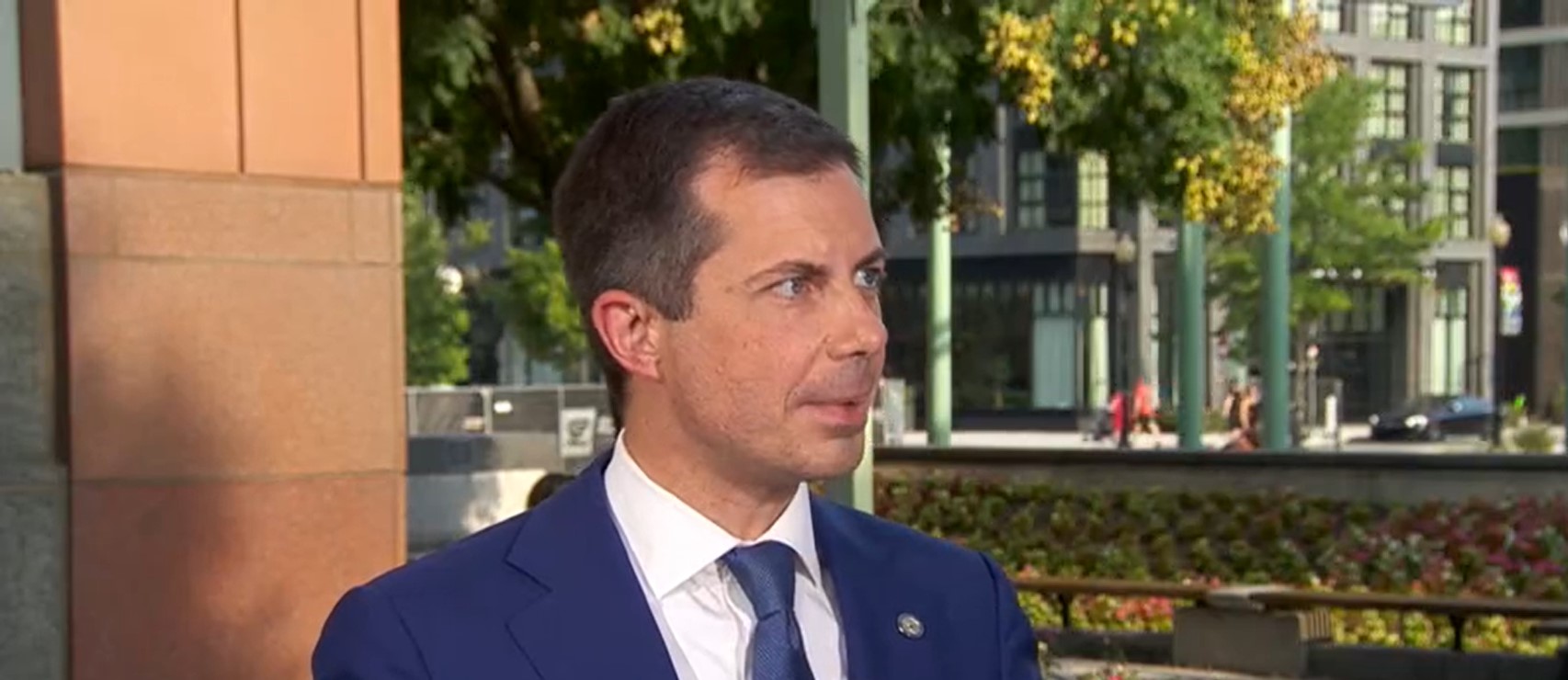Commentary: Big Tent Ideas
JACKSON SHEDELBOWER: Buttigieg’s Remarks At The Democratic National Convention Will Ring Hollow

Screen Capture/CSPAN
Pete Buttigieg is slated to speak Wednesday at the Democratic National Convention in Chicago. The secretary of Transportation will surely tout his time in office as a major success — perhaps arguing the Biden administration has “delivered the basis for an infrastructure decade,” as he previously put it while visiting Michigan.
But to the objective listener, his remarks will ring hollow.
Buttigieg’s tenure has been questionable at best. Transportation fiascos became a common occurrence on his watch.
The Francis Scott Key Bridge collapsed earlier this year, leaving several people dead. The federal government’s aviation system melted down in 2023, temporarily halting all flights nationwide. And, this summer, Amtrak passengers experienced mass delays along the Northeast Corridor as the taxpayer-funded rail network crumbled. Did you know Buttigieg is a member of Amtrak’s board of directors?
Meanwhile, an epidemic of train accidents across the country is calling rail safety into question.
Perhaps the most publicized incident was in East Palestine, Ohio, where a train carrying toxic chemicals went off the tracks last year, forcing the evacuation of nearby communities. Newly uncovered reports reveal the contamination was so serious that workers attempting to clean up nearby creeks experienced headaches and nausea.
Unfortunately, as of late, these types of episodes seem to be getting worse, not better. According to the federal government, there were on average three train derailments per day in 2023. And during a hearing on Capitol Hill in late July, the head of the Federal Railroad Administration noted, “safety performance has stagnated over the last decade—and by some measures, deteriorated.”
Under Buttigieg’s leadership, not much has been done to reverse course. The country’s roads, bridges and rails continue to decay.
While policymakers passed a $1.2 trillion infrastructure package in 2021, the Department of Transportation has run into trouble converting that money into finished projects that benefit American taxpayers. Roughly three years later, less than half of the money has been announced and reporting suggests few major construction projects have even broken ground.
A particularly striking failure centers around electric vehicle infrastructure, despite a green revolution being a main pillar of the Biden administration’s agenda. The infrastructure bill appropriated $7.5 billion with the goal of building half a million electric vehicle charging stations by 2030. But fewer than 20 have been built.
Buttigieg and the Department of Transportation also played a part in exacerbating high inflation that plagued the economy for the better part of President Joe Biden’s term in office. A 25-month shipping backlog off the coast of California resulted in shortages of items ranging from bicycles to home appliances—a dynamic that drove up prices.
While the Department of Transportation did not cause the traffic jam in the Pacific, keeping the country’s supply chains running smoothly does fall under the agency’s purview.
Buttigieg’s speech in Chicago will be met with fanfare in the arena given the politically amenable audience. But while he is undoubtedly a savvy orator, Buttigieg’s actions—or lack thereof—as secretary of Transportation speak louder than words.
Jackson Shedelbower is the executive director of the Center for Transportation Policy.
The views and opinions expressed in this commentary are those of the author and do not reflect the official position of the Daily Caller News Foundation.
All content created by the Daily Caller News Foundation, an independent and nonpartisan newswire service, is available without charge to any legitimate news publisher that can provide a large audience. All republished articles must include our logo, our reporter’s byline and their DCNF affiliation. For any questions about our guidelines or partnering with us, please contact [email protected].

